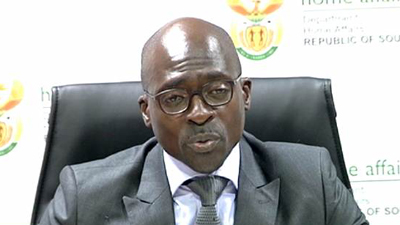South African economists have set their sights on fiscal consolidation and avoiding a credit ratings downgrade as Finance Minister Malusi Gigaba scrambles to close the R50 billion deficits when he delivers his maiden Budget Speech on Wednesday.
In his 2017 Medium Term Budget Policy Statement (MTBPS), Gigaba outlined that in the absence of a fiscal adjustment package, the consolidated budget deficit would rise to 4.3% of GDP in 2017 and 2018 from 3.4% in 2016 and 2017.
The postponement of fiscal consolidation in the MTBPS and the absence of a stabilization of debt ratios, were viewed as credit negative by the rating agencies.
But a degree of fiscal consolidation was already expected to be presented in the 2018 Budget based on a statement from the National Treasury in November 2017 that the 2018 Budget will outline decisive and specific policy measures to strengthen the fiscal framework.
Investec economist Kamilla Kaplan said to avoid further credit rating downgrades, the 2018 Budget would need to implement material revenue and, particularly, expenditure side adjustments to achieve fiscal consolidation over the medium-term.
Kaplan said the revenue and expenditure side measures, along with slower consumer price inflation (CPI) and slightly higher nominal GDP growth, would yield a consolidated budget deficit of 4% of GDP in 2018 and 2019.
“The tightening of fiscal levers, [the] adjustments to revenue and expenditure projections, is a key component of rebuilding confidence and avoiding further credit rating downgrades. Beyond this, the 2018 Budget will need to elaborate on the other ‘short-term confidence-boosting measures’ outlined in the 2017 MTBPS,” Kaplan said.
“These include further detail on managing ‘fiscal and economic risks associated with state-owned entities’ and creating policy certainty by finalising key legislative and policy processes.”
Professor André Roux, an economist at the University of Stellenbosch Business School, said that radical transformation was required to escape from the seductive allure of credit-driven spending and to revamp labour market arrangements.
Roux said that South Africa has been living beyond its means for far too long, adding that the rationalisation of the public service and a restructuring of state-owned enterprises should form part of the commitment to fiscal prudence.
“The Minister will, of necessity, present a budget that tends towards austerity in order to avert any further sub-investment gradings. In many ways, however, the success of this year’s budget will be measured by its credibility in igniting a renaissance; in heralding a ‘new normal’,” Roux said.
Rating agencies have already said that they were monitoring the country’s political landscape following last week’s resignation of former President Jacob Zuma and the election of Cyril Ramaphosa as his successor, though they indicated that South Africa’s sovereign credit ratings and outlook would not be immediately affected by the change of the country’s leadership.






